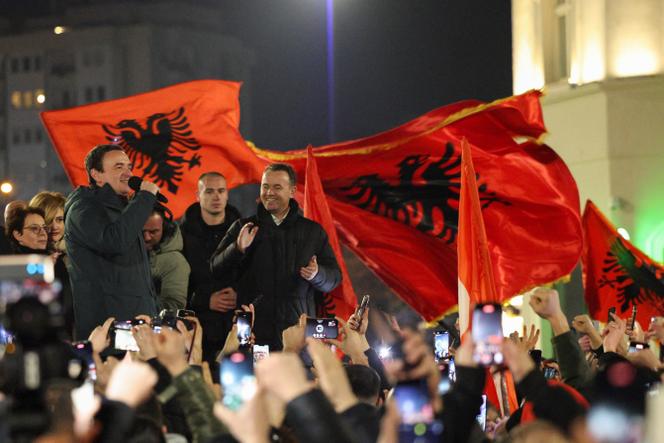


Prime Minister Albin Kurti's ruling party was on track to secure the most seats in Kosovo's parliamentary polls, the election commission said on Monday, February 10, but would lack the numbers to form a majority government.
Sunday's contest largely pitted Kurti's quest to stamp out Serbian influence on Kosovo's soil during his time as premier against the opposition's vow to boost the economy in one of the poorest pockets of Europe.
Without a party winning a clear majority in the 120-seat parliament, Kosovo was likely headed for days, if not weeks, of coalition talks and political horse-trading before a government could form. Twenty seats in the legislature are reserved for minority parties, including 10 for Kosovo's ethnic Serbs.
Kurti's Vetevendosje ("Self-Determination") party (VV) was on course to win roughly 41% of the vote with around 90% of the ballots counted, according to the commission's data. The right-wing Democratic Party of Kosovo (PDK) trailed in second with 22% of the votes, followed by the Democratic League of Kosovo (LDK) with 17%. Election officials said turnout for the vote was around 40%.
Long-time rivals PDK and LDK have partnered to form coalition governments on multiple occasions since the independence war from Serbia in the late 1990s, following mediation and pressure from the international community.
During the run-up to Sunday's vote, Kurti hinted that he would prefer to sit as the opposition if his party was unable to form a majority government. Yet as the votes were counted, Kurti said his party would try to form a government. "Congratulations on our victory," he told supporters.
The initial tally had been muddled on Sunday, with Kosovo's election commission saying the software designed to help count the vote had malfunctioned, which delayed the release of the results. The issue appeared to have been resolved, with the official website publishing the election results back up and running on Monday morning.
Kurti's government is the first to finish its full term in office since the breakaway Serbian province declared independence.
However, Kurti's rule has been turbulent. Tensions spiked after EU- and US-backed negotiations between Kosovo and Serbia all but collapsed in March 2023. In the aftermath, NATO peacekeepers were assaulted by rioting Serbs while a deadly armed standoff in the north sent regional tensions soaring.
Kurti also launched a concerted effort to dismantle the remaining Serbian institutions operating on Kosovo soil by shuttering Belgrade-backed banks and post and tax offices along with banning the Serbian currency and car plates.
Throughout the unrest, Kurti has remained unwavering, even if it meant running afoul of Kosovo's vital allies in the United States and Europe.
